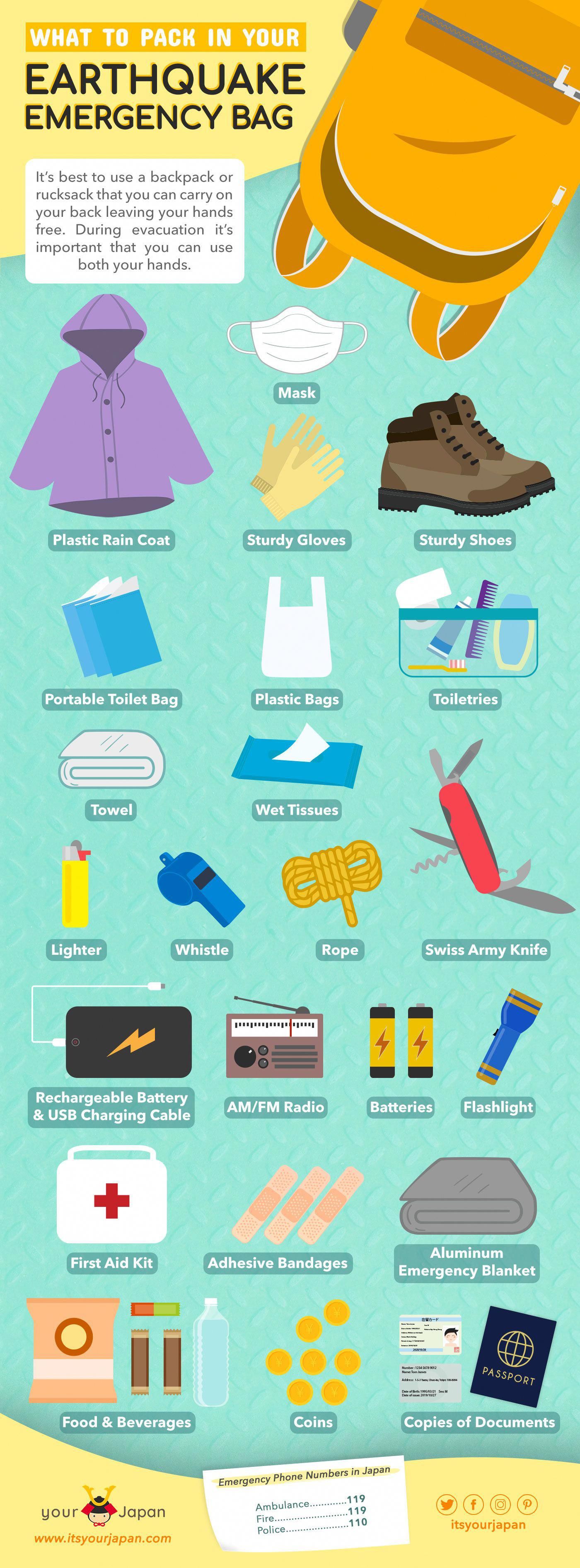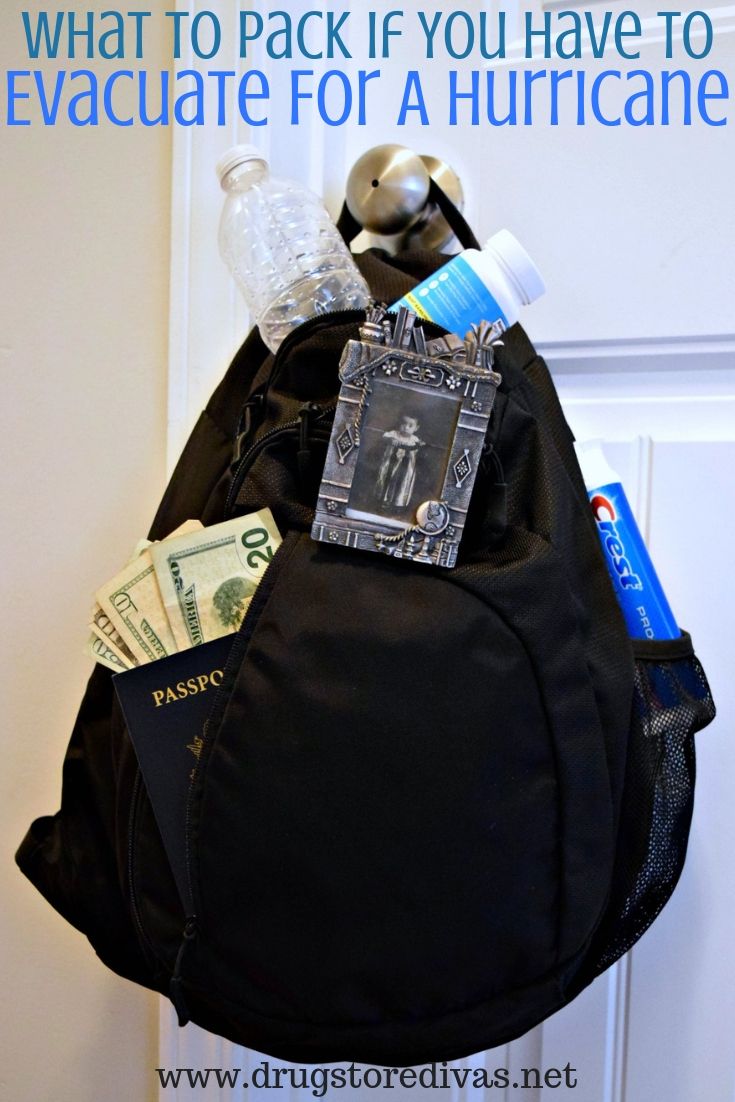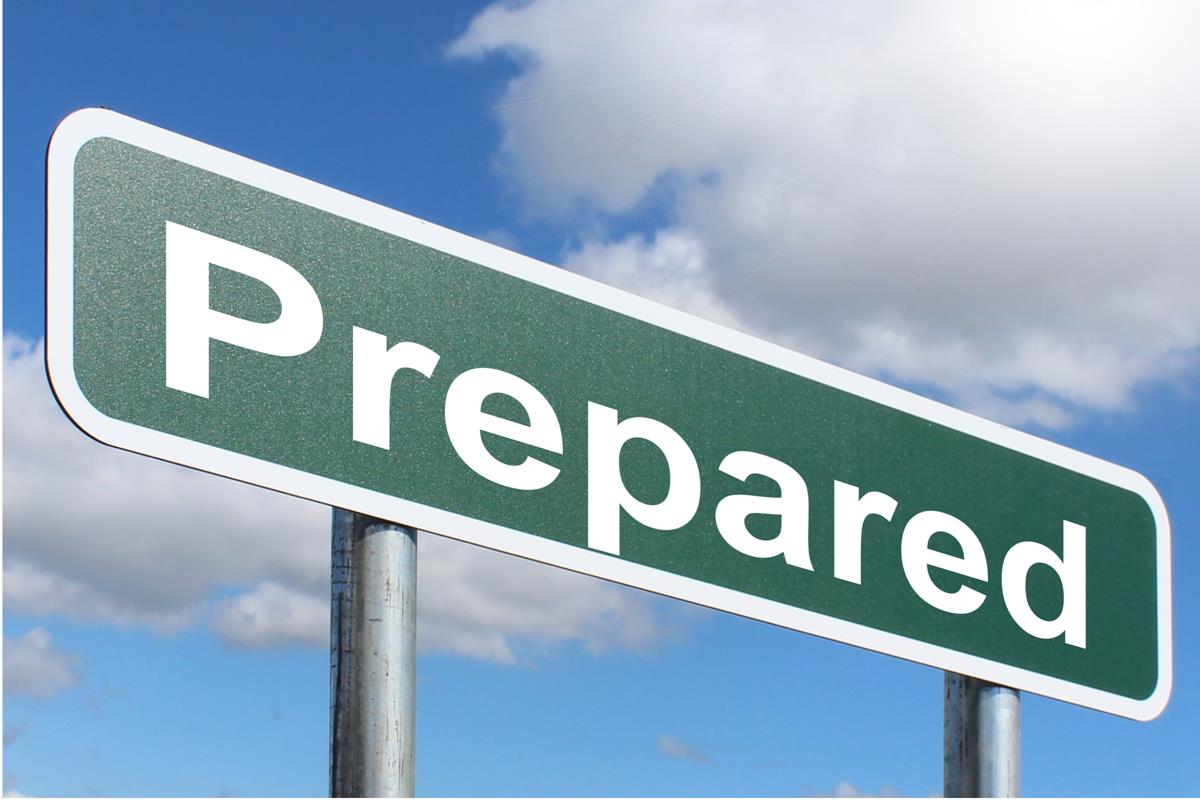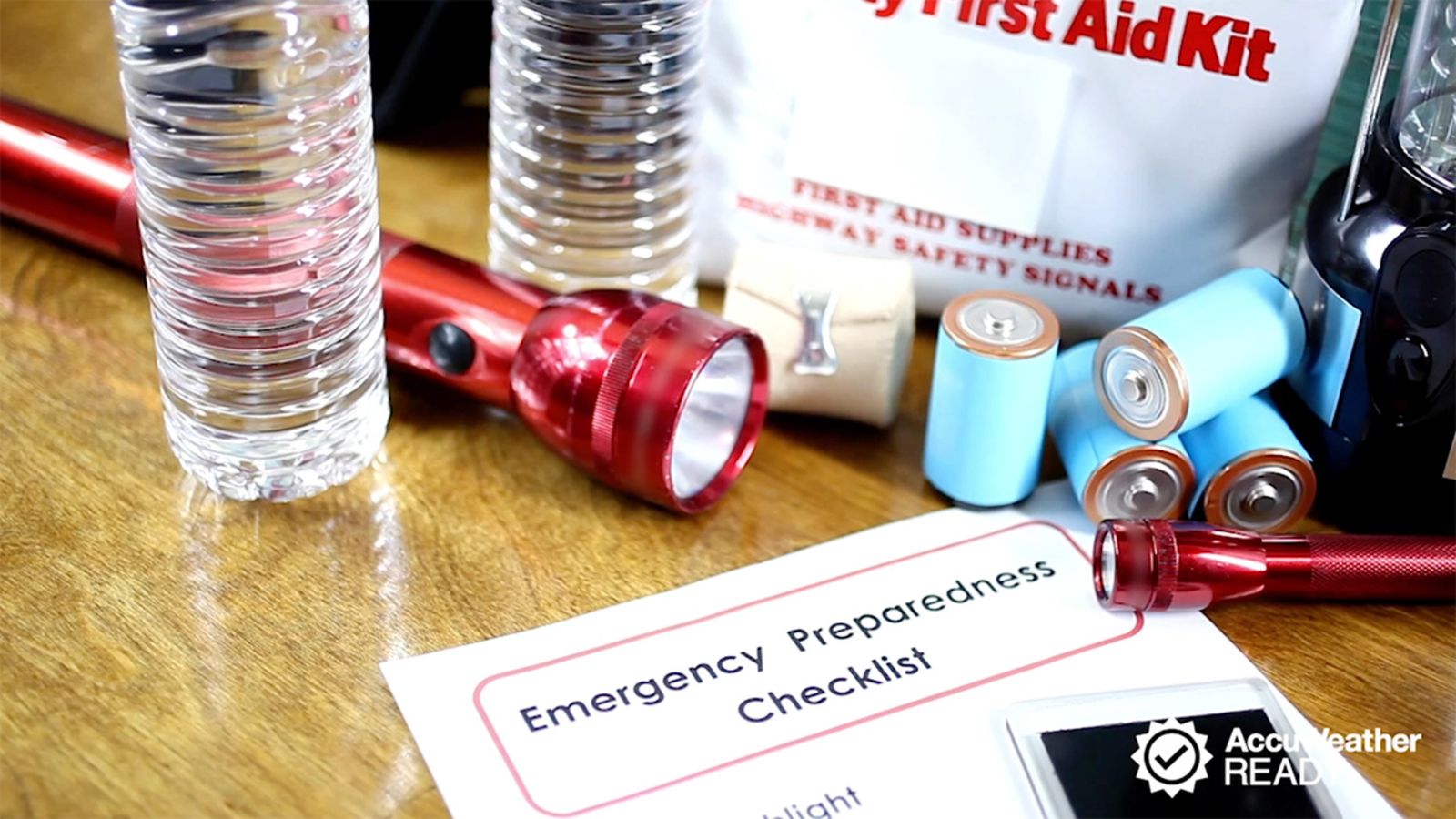In the face of a natural calamity like an earthquake, having an emergency go bag packed with essential supplies can make a world of difference. This bag should be designed to provide sustenance and protection for at least 72 hours (three days) following the event. Here’s a detailed list of items to include in your earthquake go bag:

Non-Perishable Food: Pack at least a three-day supply of non-perishable food items that require no cooking or refrigeration. Consider things like energy bars, canned goods, freeze-dried meals, crackers, nuts, and dried fruits.

Water: Include at least one gallon of water per person for each day, which translates to three gallons of water for a three-day period. Consider storing water in sealed, unbreakable containers to maintain its purity.

First Aid Kit: Assemble a comprehensive first aid kit that can handle various injuries and medical emergencies. Include bandages, antiseptic wipes, pain relievers, gauze pads, scissors, adhesive tape, and personal medications.
Flashlight and Batteries: Pack a sturdy flashlight, along with extra batteries, to ensure you have a source of light during power outages. Headlamps can be particularly useful, allowing hands-free illumination.
Radio and Batteries: Include a battery-powered radio to stay informed about emergency broadcasts and instructions from authorities. Ensure you have enough spare batteries to keep it operating.
Cash and Important Documents: Carry some cash in small bills as ATMs and credit card machines may not be accessible after an earthquake. Also, keep copies of important documents like ID cards, insurance papers, and emergency contact information in a waterproof container.
Clothing and Rain Gear: Pack a change of clothes for each person, including sturdy shoes or boots. Consider adding a raincoat or poncho to protect against rain or harsh weather.
Sanitation and Hygiene Items: Include a supply of hand sanitizer, moist towelettes, toilet paper, feminine hygiene products, and garbage bags for personal hygiene and sanitation.
Warmth and Bedding: Pack a blanket or sleeping bag for each person to keep warm during chilly nights. Consider adding a small tent or tarp for shelter if necessary.
Tools and Multi-Purpose Items: Include a multi-purpose tool or Swiss Army knife, duct tape, a whistle to signal for help, and a sturdy pair of work gloves for handling debris or performing essential tasks.
Communication Devices: If you have a cell phone, ensure it’s fully charged and bring a portable charger or power bank to keep it operational. Consider adding a solar charger for long-term use.
Essential Medications: If you rely on prescription medications, pack a three-day supply in their original containers, along with any instructions or dosage information.
Pet Supplies: If you have pets, include a three-day supply of food and water for each pet, as well as a leash or carrier for safe transport.
Safety Goggles and Mask: Pack safety goggles and a dust mask to protect your eyes and respiratory system from dust, debris, or smoke in the aftermath of an earthquake.
Remember to keep your go bag in an accessible location that all family members know about. Regularly check and restock items as needed, ensuring they’re in good condition and ready for use in an emergency.










